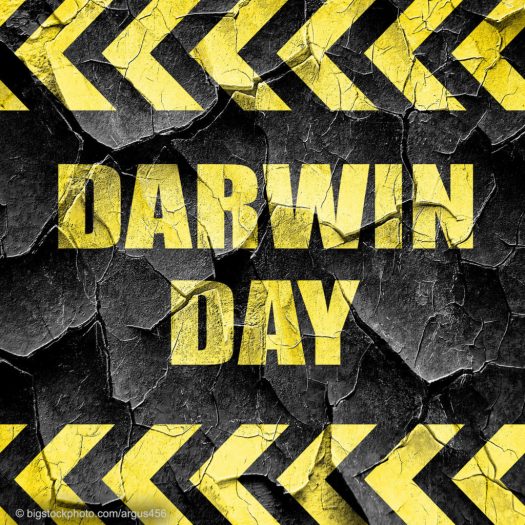
(Today is the birthday of Charles Darwin and has been proclaimed by many organizations as “Darwin Day.” This post by John Clayton is a condensed version of an article in the printed DOES GOD EXIST? Journal for May/June 2013.)
The Galapagos Islands are located some 600 miles west of Ecuador. They were made famous by the studies and work of Charles Darwin who visited the islands in 1835 at the age of 26. His studies led him to some understandings which violated the religious traditions of his day. They also were seized upon by some philosophers to justify a belief system that rejected God and depended on naturalism as the faith upon which they lived their lives.
The reason I have always wanted to visit the Galapagos Islands is that evolution has been used as a club by many skeptics and atheists against belief in God and acceptance of the Bible as His word. In our ministry, we have maintained that science and faith are friends and not enemies and that science supports the biblical record. We have also maintained that since the same God who created all living things also gave us the biblical record, no scientific fact can conflict with what the Bible says. If there is a conflict, I believe it is because we have bad science or bad theology or both.
Darwin was studying the question of how animals came to be as we see them today. There are 13 species of finches scattered throughout the 13 main islands, six small islands, and 42 islets, where detailed studies of the finches have been conducted. In addition to the finches, there are various iguana species that cannot interbreed. The Galapagos land iguanas are infertile with the Galapagos marine iguanas. The marine iguanas feed on algae on the floor of the ocean and have a gland in their respiratory system that collects excess salt in their bodies and “sneezes” it away. Even the huge Galapagos tortoises, which can weigh over 500 pounds, are different on each island and infertile with the tortoises on other islands. Today our studies of DNA and the genomes of living things have shown how close these animals are to each other genetically. The incredible wisdom built into their DNA allows them to adapt and become unique for a particular environment. The research being done at the Charles Darwin Research Center is helping us to understand how to control and protect all forms of life on this planet.
In Darwin’s day, the claim of most theologians would have been that God created each tortoise separately, and placed each one on its island and that they were unchanged to this day. What Darwin maintained was that there was a design system built into the animals which allowed them to change to fit the physical conditions in which they found themselves. Since genetics was not a functional science at that time, Darwin had no idea what the design feature was that allowed this natural change, but he maintained it was the explanation for the finches and iguanas and tortoises.
What was going on theologically in Darwin’s day is essentially what is going on today. People had decided that the Bible was too radical to be believed. Not only did people not want to follow the Bible’s teachings, but they considered it to be primitive ignorance to suggest that Genesis was true. We now know that the genome of the iguanas contains enough stored information to allow the iguanas to live in a marine or land environment. The design of the genome is a fantastic demonstration of God’s wisdom and design allowing the finches to live in every ecological niche the Galapagos has to offer. Even the tortoises have subtle physical characteristics that enable them to reproduce and live in particular habitats.
What impressed me about the work going on in the research stations we visited was that it was good science and not speculative theories and philosophies. Researchers were not looking for a link between the finches and the iguanas. They were concerned with understanding how the natural history of the Galapagos had shaped and was being shaped by the forms of life that exist there. In talking with researchers, I encountered no one who felt there was a conflict between what they were doing and faith in God and the Bible. We had a guide assigned to our boat by the governmental agencies. He was very knowledgeable and expressed some wonderment that anyone would even suggest that somehow this area that he knew so well would be contributing to doubts about God and the Bible.
We have much to learn about how God has designed and created the Earth and it’s living creatures. There is no reason to fear that one’s faith will be destroyed because the beauty and wisdom of God shine as brightly in the Galapagos as any place on this planet. It is sad that in our day people have taken Darwin’s work and attempted to exclude God from our thought processes as we study life on Earth.
–John N. Clayton © 2017
For the complete article and pictures go to:
http://www.doesgodexist.org/MayJun13/DGEMayJun13.html




